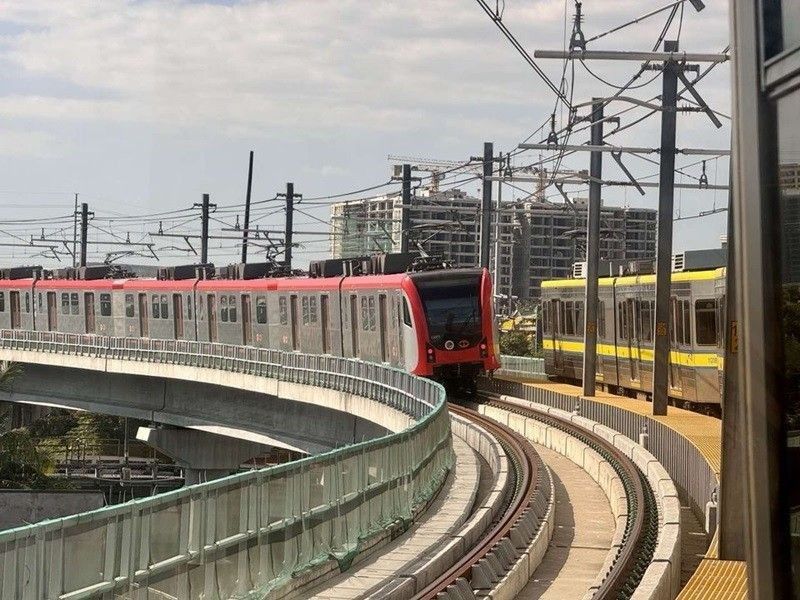lRT-1 Cavite extension 97% complete
Photo shows test runs of LRT-1 trains on the tracks of LRT-1 Cavite Extension Phase 1. Released / Light Rail Manila Corporation MANILA, Philippines — The first phase of the Light Rail Transit Line 1 (LRT-1) Cavite Extension is 97 percent complete. The Light Rail Manila Corp. (LRMC), operator of LRT-1, is expediting civil works […]


Photo shows test runs of LRT-1 trains on the tracks of LRT-1 Cavite Extension Phase 1.
Released / Light Rail Manila Corporation
MANILA, Philippines — The first phase of the Light Rail Transit Line 1 (LRT-1) Cavite Extension is 97 percent complete.
The Light Rail Manila Corp. (LRMC), operator of LRT-1, is expediting civil works for five stations to be added to the railway.
The LRMC said it has delivered 93.3 percent of the Redemptorist station, 93.5 percent of the MIA station and 83 percent of the Asia World station.
The concessionaire has built 88 percent of the Ninoy Aquino station and 94.1 percent of the Dr. Santos station, the end of the segment.
LRMC has finished the installation of telco assets at the Redemptorist and Dr. Santos stations, and is working on the MIA and Asia World stations.
The louver and staircase for the Dr. Santos station have been installed and the ceiling for the MIA station is being mounted.
Apart from building the stations, LRMC is testing the compatibility of LRT-1 trains with the extension tracks to ensure the readiness of rail systems.
LRMC president and chief executive officer Juan Alfonso expressed confidence that the additional five stations would be operational before the end of this year.
The extension will expand LRT-1 by 6.2 kilometers, stretching the railway from the Baclaran station in Pasay City to Dr. Santos station in Parañaque.
The segment is projected to benefit around 600,000 commuters daily.
LRMC will pursue two more phases that will extend LRT-1 to Las Piñas and Cavite. It hopes to complete the project in 2027.
The LRT-1 extension project was originally estimated to cost P64.92 billion. LRMC invested an additional P4 billion to cover civil works delays during the pandemic.














